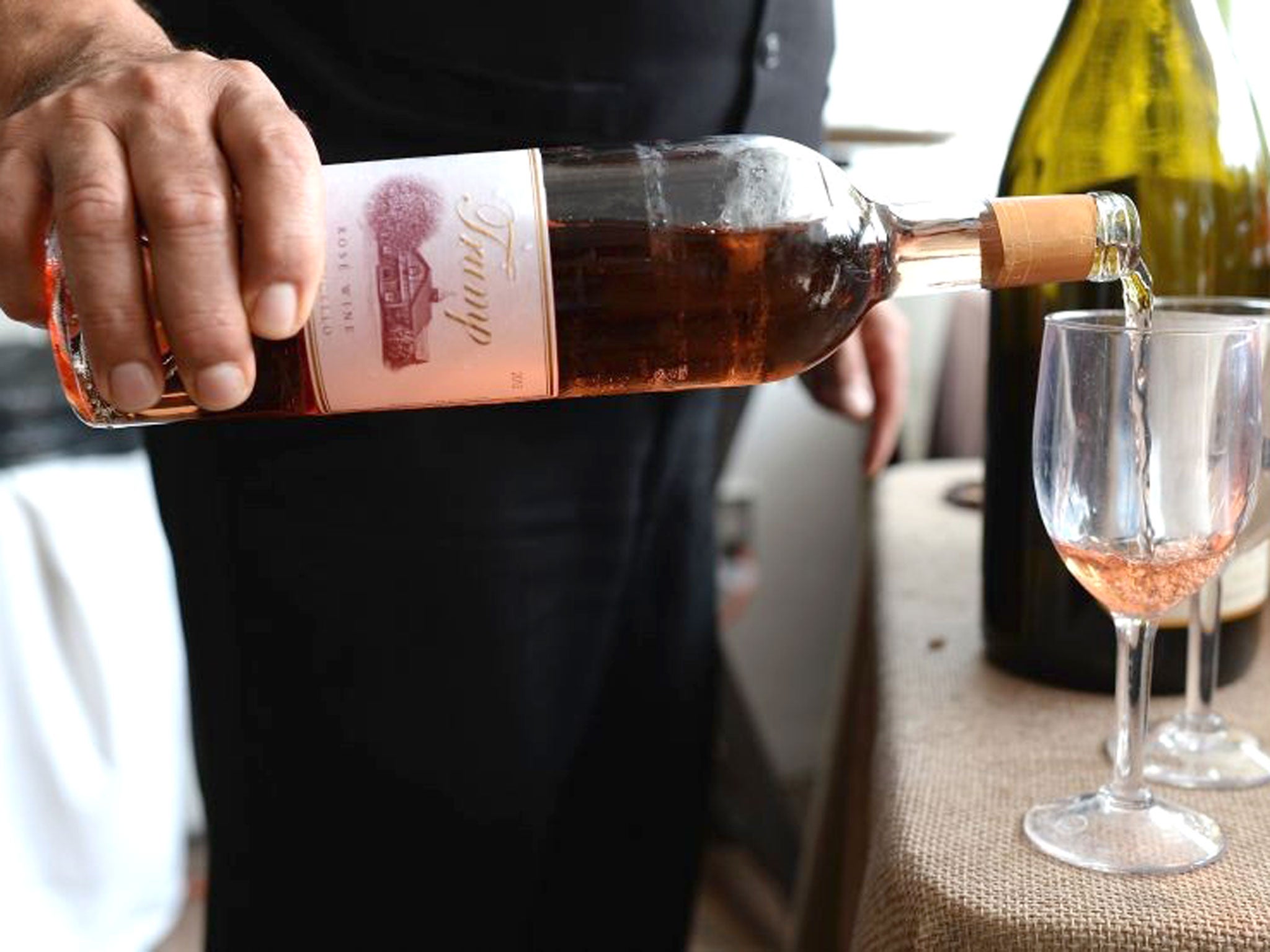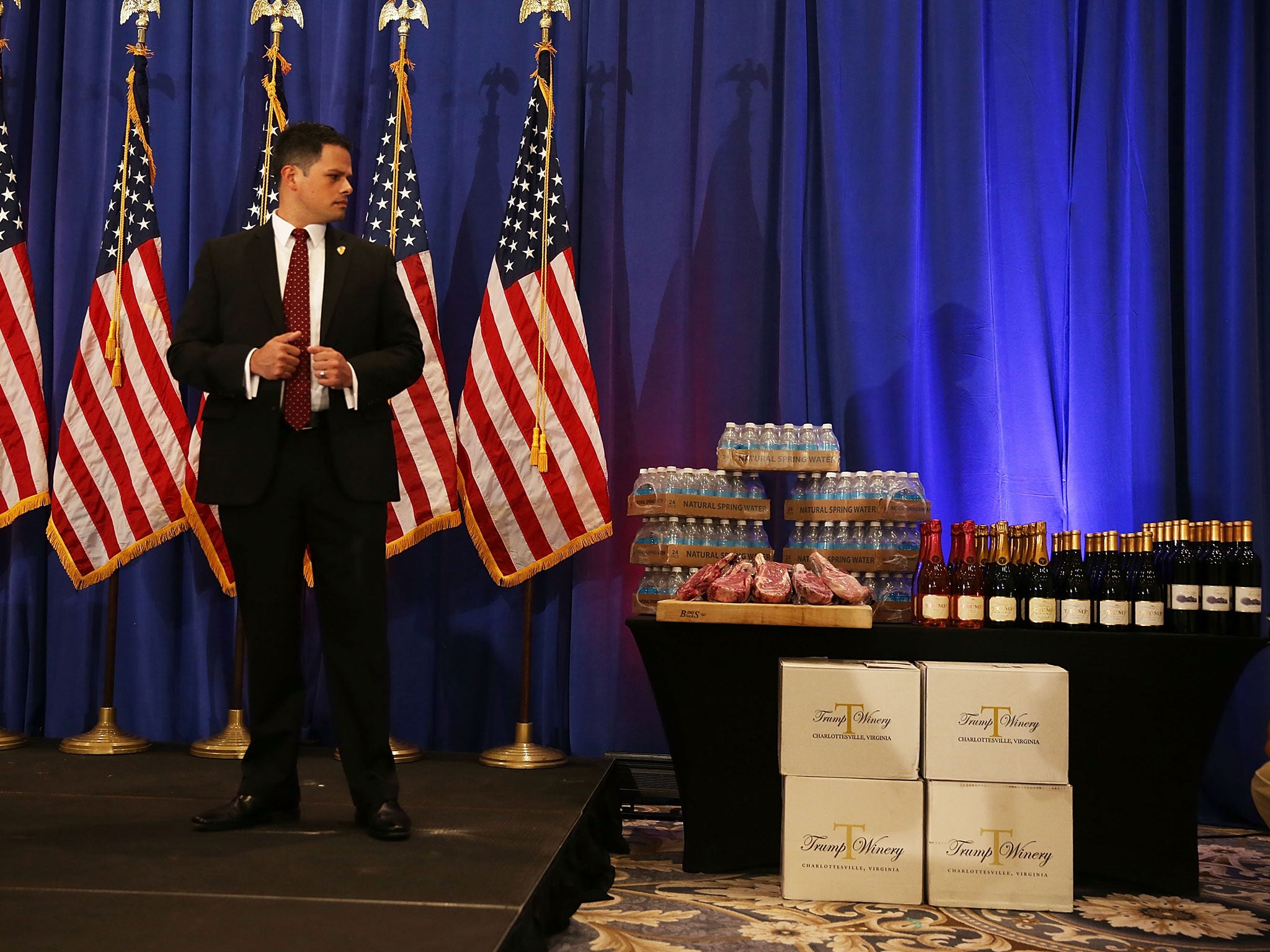Donald Trump's vineyards produce fine vintages - and a dilemma for Democrat sommeliers
Trump wines are actually a superior gargle, but their links to the GOP frontrunner and their bullish branding make them hard to swallow. Sommelier Erin Scala reports

Your support helps us to tell the story
From reproductive rights to climate change to Big Tech, The Independent is on the ground when the story is developing. Whether it's investigating the financials of Elon Musk's pro-Trump PAC or producing our latest documentary, 'The A Word', which shines a light on the American women fighting for reproductive rights, we know how important it is to parse out the facts from the messaging.
At such a critical moment in US history, we need reporters on the ground. Your donation allows us to keep sending journalists to speak to both sides of the story.
The Independent is trusted by Americans across the entire political spectrum. And unlike many other quality news outlets, we choose not to lock Americans out of our reporting and analysis with paywalls. We believe quality journalism should be available to everyone, paid for by those who can afford it.
Your support makes all the difference.Over the weekend, President Obama weighed in on one of the pressing issues in the campaign for the Republican nomination to succeed him in the White House.
No, not how to stop Donald Trump — but whether the wine that bears his name is any good. "Has anybody bought that wine? I want to know what that wine tastes like," Obama said at a fundraiser in Dallas on Saturday. "I mean, come on. You know that's like some $5 wine. They slap a label on it. They charge you $50 and say it's the greatest wine ever."
As those of us who live near Trump's vineyards know, though, the real shame about Trump Winery is not that its wines are not good – it's that some of them actually are. But these days, their association with the GOP frontrunner is likely to keep them off the wine lists on which they otherwise belong.
I work in the restaurant business in Charlottesville, Virginia, a short distance from the winery and I've made a conscious decision not to carry the Trump brand. While the election might take over your dinner conversation, a welcome table is not one that pours liquid politics down your throat. (For the same reason, if other candidates got into the beverage industry, I wouldn't be serving Clinton Chardonnay or Bernie Beer, either.)
Those Trump wines Obama was joking about, however, have a longer history in this area. In 1999, the first vines went in the ground under the Kluge Estate name and set the tone for what would become Trump Winery in 2011. Under the Kluge label, the vineyard's wines have been served at the White House and even at Chelsea Clinton's wedding rehearsal dinner. Trump's son, Eric, supervises the winery now, and its labels have evolved from "Kluge" to "Trump" to today's all-capital-letters "TRUMP," in a font that evokes US currency.
Trump Winery is one of the few "estate" wineries in the area that focuses on growing its own fruit as opposed to buying it. And it's an operation headed up by a serious vintner, Jonathan Wheeler, who makes a full spectrum of wines: sparkling, white, rosé, red and dessert. He has 200 vineyard acres to play with, and he stands in a key position to influence the direction of the entire region.
It's not the only wine that might prick your interest in a blind tasting, though. The recently bottled 2015 Chardonnay and the Viognier, now available for sale, come from one of the greatest Virginia white wine vintages in recent memory. Wheeler made his Chardonnay in steel and oak, and it's a balanced example of the vintage. The Viognier is a classic example of that varietal, too.
The reds are Bordeaux-style blends, usually based on a majority of Merlot, which does well in Virginia as an early ripener. They are lush, bold reds that have a little bit of ageing potential, but you would mostly want to drink them on release. Wheeler also makes a unique dessert wine from fortified Chardonnay, aged in old Bourbon barrels.
I've been watching and tasting these from a distance for quite some time. On taste alone, there are a few bottlings that I'd like to support, but I'm sure Obama would agree: the intense branding makes the stuff hard to swallow.

Some of that hesitation predates Trump's involvement in politics. As a general rule, I disdain wine brands. When the strength of a wine's brand eclipses the actual product, the focus goes away from the wine itself, onto the brand and what that brand represents.
Branding is easy, if you know how to do it. Winemaking is hard work and it changes year by year. When a branded winery experiences mass popularity, the wine and the hard work of the winery team become disembodied from the brand, in this case reduced to a side note as the wine's meaning becomes less about terroir and more about Trump.
Does it matter why someone drinks a wine? Is it a shame that much of this carefully grown and made wine will be consumed in symbolic solidarity by fervent supporters of a candidate who, ironically, does not drink alcohol? Will Virginia's special 2015 white wine vintage be appreciated at all in the frenzy of 2016?
Trump Winery is certainly doing fine without my business (several wines are sold out), and I am doing fine without them. But as these wines switch gears from beverage to propaganda, I worry that what could be an important part of our emerging wine legacy will be lost.
A century from now, how will Trump's politics have affected the wine trade? Objectively, I want to appreciate some of these wines. Unfortunately, now that the label talks so loudly, what's in the bottle has lost its voice.
© Washington Post
Join our commenting forum
Join thought-provoking conversations, follow other Independent readers and see their replies
Comments